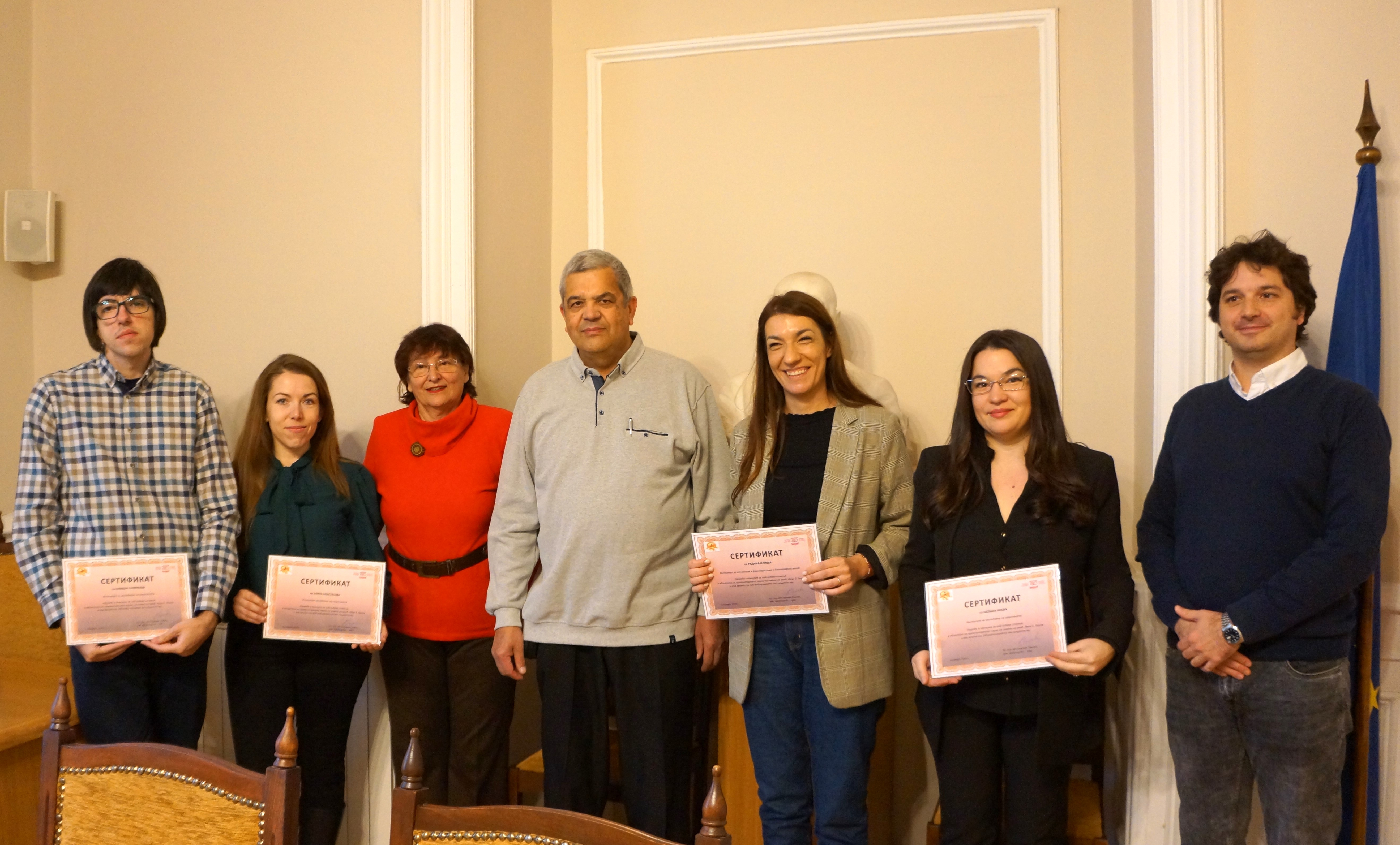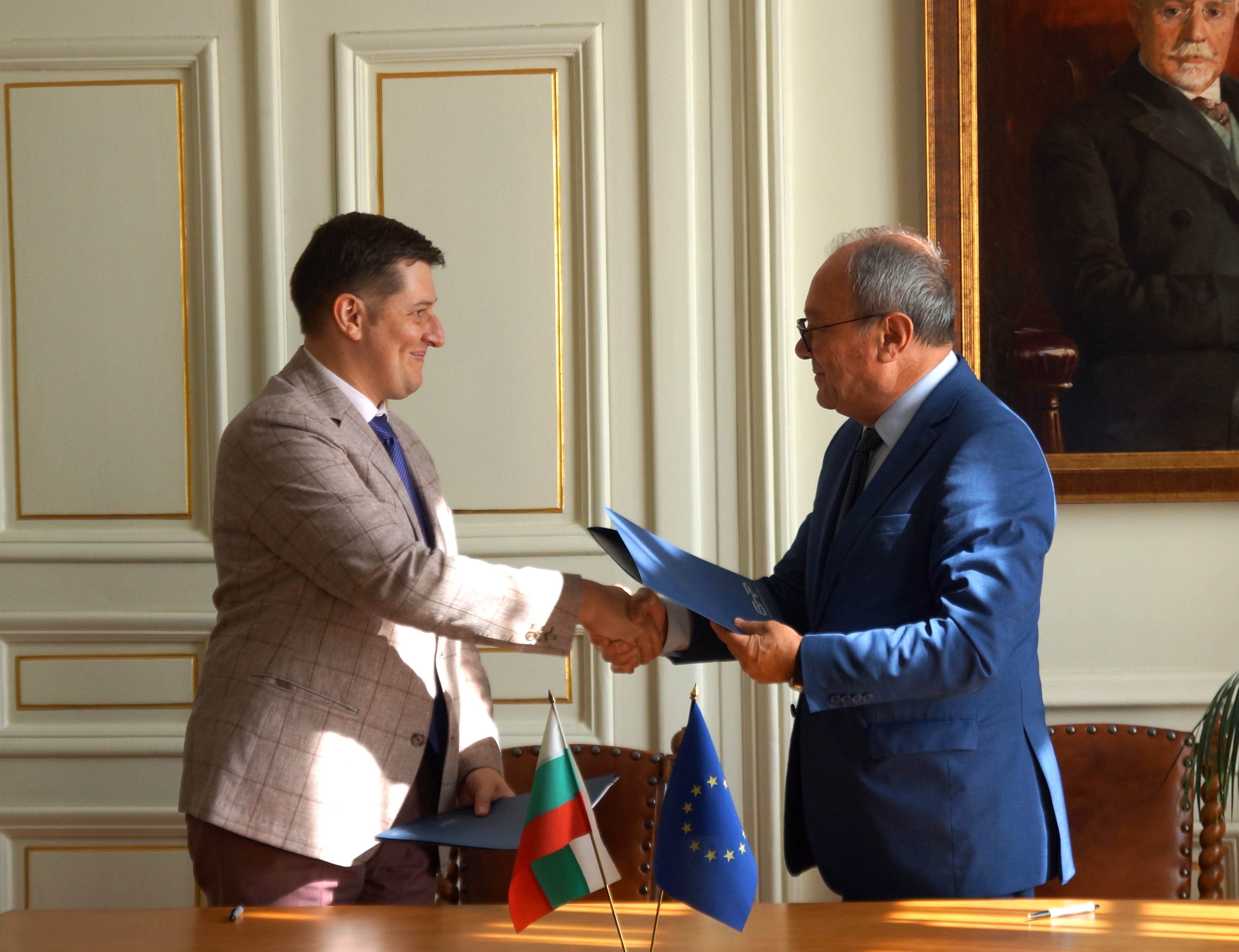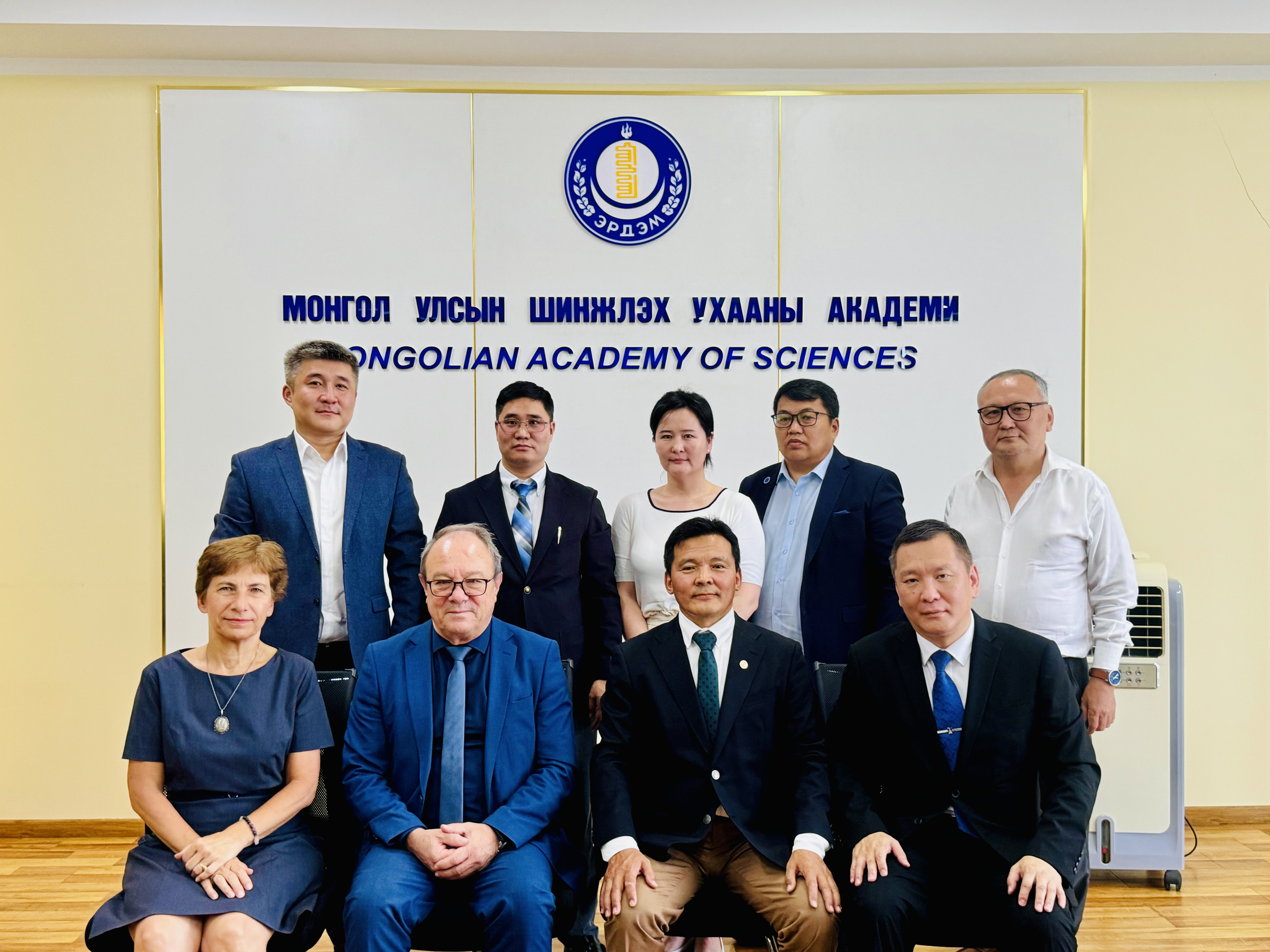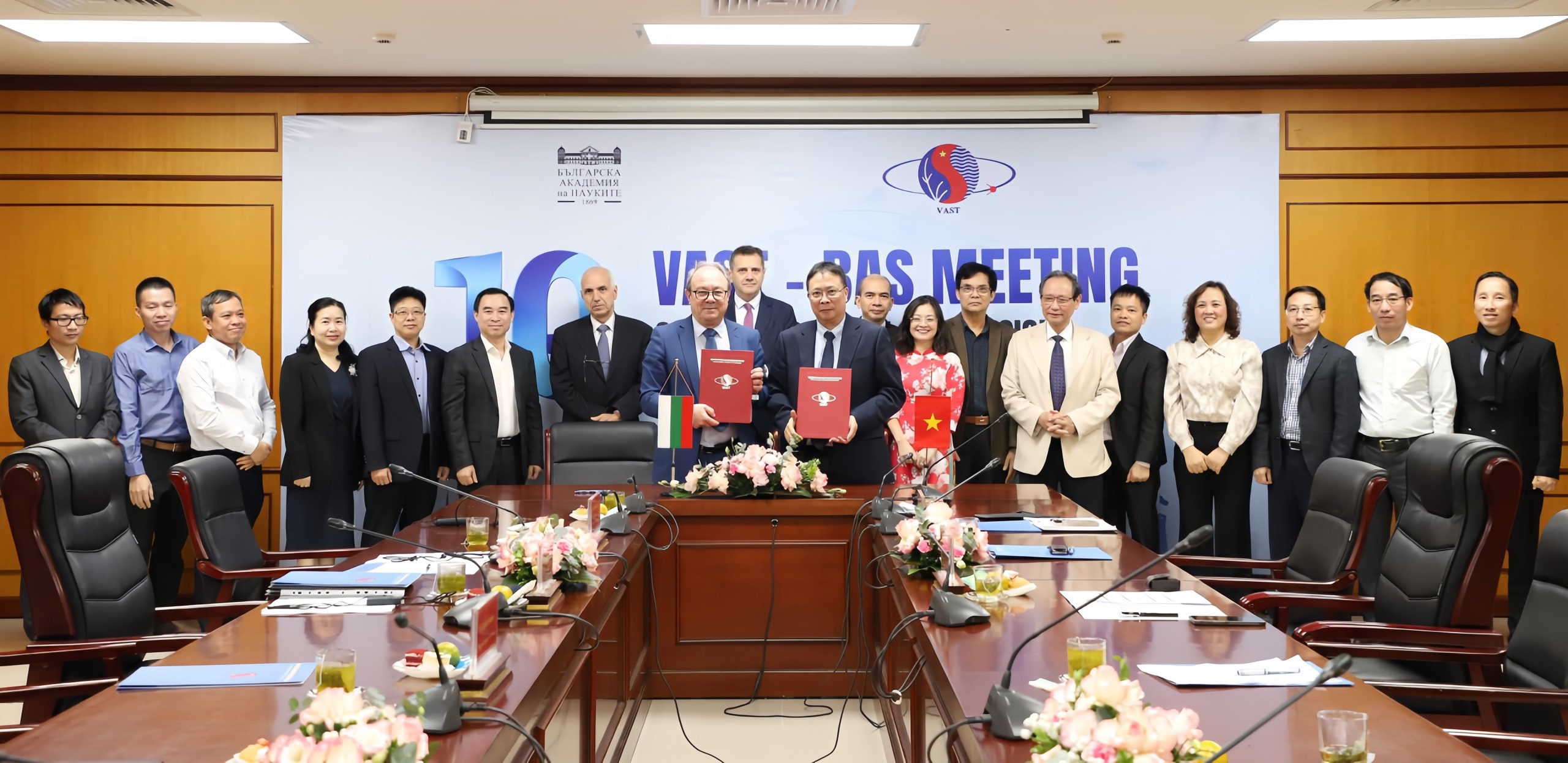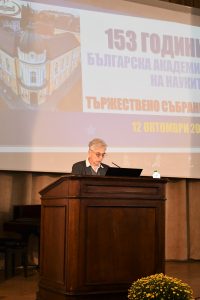 Speech by Academician Svetlanka Kuyumdzhieva
Speech by Academician Svetlanka Kuyumdzhieva
BULGARIAN ACADEMY OF SCIENCES – 153 YEARS OF HISTORY
Celebrating the birthday of the oldest Bulgarian scientific institution, the Bulgarian Academy of Sciences, has always been a wonderful occasion to remind ourselves of what we have created over the years and what we have gained for the benefit of people. Can we boast that today, after 153 years of history, we have constructively developed what was bequeathed to us by our predecessors? We, like them, have vowed to serve our country. We are committed to being representatives of one of the oldest European countries with a thousand-year culture and unlike many other peoples, we have deep historical and linguistic roots. We have earned the enviable international recognition of being a “state of the spirit” . The pathos in this case is quite natural, especially when we turn to a time which reveals a frantic urge of our resurrected people for knowledge and progress.
The Bulgarian Literary Society, whose successor is the Bulgarian Academy of Sciences, remains a unique phenomenon. Its establishment, when there was still no Bulgarian state, remains one of the peak events during the Bulgarian revival, along with the establishment of the first secular school in Koprivshtitsa in 1835, the first community center in Svishtov in 1856 and the establishment of the Bulgarian Exarchate in 1870 It, in the words of its first chairman, Marin Drinov, is the embodiment of the ideas of uniting all “educated Bulgarians and public institutions” and establishing close ties with the “scholarly world in general”. “Without the help of science – says Marin Drinov – a nation would never reach importance for all humanity”. Did he know the proclamation of St. Constantine-Cyril the Philosopher, made nearly 1,000 years before in connection with the creation of the Slavonic script, that “All nations are naked without books…”. He must have known it, because he encouraged Bulgarians to science, defining them as “hardworking people, gifted with bright mental abilities and good moral qualities…”. His words turned out to be prophetic, since only in the first few decades of its existence, the Society established spelling, issued numerous Bulgarian monuments and historical studies, and laid the foundations of Bulgarian humanitarian studies, geology, statistics, geography, etc. In a relatively short period of time, it established itself as the most authoritative scientific and educational center of the European type, gathering as a focus the color of the educated Bulgarian intelligentsia. The success is really great, since our ancestors started with none other than the spiritual elevation of man, with the construction of modern schools and community centers, with the compilation and publication of books that would educate.
The idea of creating a scientific organization with the aim of uniting educated Bulgarians inside and outside the Bulgarian lands, directing their creative energies to work for the overall progress of the Motherland, comes from the example of other European nations that have already formed scientific societies or academies . Not a few of them, it has been found, are involved in the process of consolidating the most productive forces of a given nation to achieve its intended goals. This is also the basis of the Bulgarian Literary Society. It is significant that in his first accounting book, Kondikata, 322 names of patriotic Bulgarians expressing their willingness to become facilitators for its creation are recorded. These are individuals with a great moral awareness, with complete dedication in the name of the spiritual progress of our people. They are from all walks of life: merchants, writers, educators, writers, public figures, revolutionaries… The names of Evlogii and Hristo Georgievi, Vasil Drumev, Dobri Voynikov, Vasil Levski, Hristo Botev, Nayden Gerov, Marin Drinov, Vasil Stoyanov and many others remain forever in our minds as builders of the largest established scientific institution in our country.
The renaming of the Society into an Academy came quite naturally in 1911. The discussions in the XV National Assembly on the occasion of the proposed Law on the Academy of Sciences, which took place at the end of the same year, were in fact a recognition of the Society’s merits as an important emblem of learning and enlightenment in the Bulgarian state. In the reasons with which the law was introduced, as can be seen from the shorthand diary of the National Assembly, the state’s obligation to encourage “even more the newly formed Academy in its expanded scientific activity” and to allocate a budget subsidy “for the service rendered by the Bulgarian Academy” with his work for the National science and the state itself…”. The autonomy of the Academy as an “independent and independent scientific institution” is not questioned. It is remarkable that even opponents of the petitioner support this independence: “There is no need – they say – for the Academy to be under any authority … science knows … no subordination”. For the prosperity of the new institution, we owe a lot, as is well known, to Ivan Evstratiev Geshov, Prime Minister of Bulgaria, Chairman of the Book Society and BAS, as well as their patron. His belief, expressed in his Will, is in full sync with the mission of the scientific institution . It sounds particularly relevant even today: “…I fought – says Geshov – …to reach an agreement between Bulgarian sons… between classes and parties, between Balkan states and peoples… the only salvation of Bulgaria – he concludes – is to work for the rebirth of her soul, for the culture of the mind and heart of her sons…”.
After the Second World War, technical sciences were added to the previously formed units of the Bulgarian Academy of Sciences – humanities, arts and natural and mathematical sciences. The Academy gives Bulgaria the first contact with the new achievements in modern science. Let’s remember that this is where the development of atomic physics, nuclear energy, opto – electronics, laser and computer technologies began; the first connection to the world wide web is made here; our units are the basis of Bulgarian participation in space exploration. In addition, the Bulgarian Academy of Sciences serves the state with routine applied scientific activities, such as monitoring the seismic situation and the environment, gives opinions on important national issues for the development of society and the state. Here the parameters of the national identity of the Bulgarians both in Bulgaria and among the Bulgarian diaspora scattered in different parts of the world are presented. The socio-political and socio-cultural history of the country is reconstructed in all its areas from the earliest times to our modern times. The patented inventions of Academy scientists are measured in the thousands, and a number of discoveries bring great international recognition. Among them, we cannot fail to specifically mention those of the largest scale, such as the first research atomic reactor in Southeast Europe, built in 1950, the discovery of the photoelectric effect by Academician Georgi Nadjakov, the counter-pressure casting developed under the leadership ¬¬of Academician Angel Balevski, the discoveries of Academician Ivan Kostov in the field of mineralogy, of Academician Evgeni Budevski in electrochemistry, which put Bulgaria fourth in the world in lithium element technology, the achievements of Academician Rumen Tsanev in the field of molecular organization of the genetic apparatus , of Academician Blagovest Sendov in the field of mathematics, the achievements in astronautics, the discoveries in the field of Old Bulgarian studies about the existence of original Old Bulgarian art from the early Cyril-Methodian era, in the field of trachology and archeology, such as the Varna Eneolithic Necropolis and the Rogozen Treasure, caused a huge sensation and many others , not to mention the interdisciplinary and comparative ones the research that is done on a pan-Balkan, pan-European and global scale.
In the context of its centuries-old existence, the Bulgarian Academy of Sciences has gone through a series of major socio-political, socio-economic and cultural-ideological ¬upheavals. Despite this, or precisely because of this, it manages to remain as a leading and constructive national institution. There is no significant event or significant person from our scientific and cultural history that has not been represented in the Bulgarian Academy of Sciences, and that it has not been the main organizer of their presentation – either with a scientific forum, with the display of exhibitions or with the publication of materials. And today, when humanity is experiencing a number of crises, and crises piled up one after the other – social, economic, political, health, security crisis, personality crisis, the Bulgarian Academy of Sciences does not stop working energetically to overcome them. Its functioning remains an integral part of Bulgarian statehood. It is too alarming, however, that as a society we have reached a high point of disunity and intransigence towards one another, of negation of what has been achieved before us. Isn’t the strength of a nation in keeping and respecting its established traditions? Should we cut the branch on which we are sitting and short-sightedly think that everything starts with us? It is certainly not easy to be able to assess which of the things done is particularly necessary and to build on it, to sift the necessary from the unnecessary. We know that negation and pessimism are far from foreign to the genetic “chip” of the Bulgarian. But if we try to learn some lessons from history, we will see that in the conditions of universal crises, of dramatic collisions and changes on a global scale, it is important to be together, to objectively assess what we have achieved and preserved. Yes, ” combination makes strength ” , but these cherished words often remain empty – their realization seems to be overwhelming. And they direct us to face the problems together and solve them in dialogue, with commitment and understanding, to work together to promote those areas that are the pillars of every society and on which the achievement of a better life depends . Undoubtedly, these are science, education, culture and arts, innovation and technology. Experience shows that agreement, unity and tolerance can only contribute to the success of the set goals, as well as that in a time of loss of traditional moral values, education and spirituality – two spheres from the orbit of science – become essential . Spirituality understood as continuous intellectual and moral improvement based on deep knowledge that gives confidence and builds self-esteem. It is precisely in this sense that Academician Angel Balevski wrote: “And our nation can be counted among the great… It is great with its historical past, with its opportunities, with its spiritual wealth…”. It is reasonable to ask whether the lack of spirituality is not one of the reasons for the functioning in recent times of a parallel marginal society – a society unfortunately of mostly young people, remaining uneducated and brought up in a misunderstood popularity, which is essentially in its vast majority a sleaze , sustained by rampant commercialism.
The problems are not few and they are particularly painful. Scientists from the Academy, excellent specialists in individual fields, are actively involved in discussing them. Of course, the most valuable capital in the Bulgarian Academy of Sciences are the people working in it. As 15 3 years ago, as now, they are available to the Bulgarian society. Bulgarian scientists are able to offer and offer the most competent, reasoned and independent opinion on essential problems in all areas of social and spiritual life, and through their knowledge they are involved in the upbringing and education of the young generation, which – we strongly hope – we can lead with our work and our example. It has been pointed out that the Bulgarian Academy of Sciences is the institution that sets many of the standards needed by modern politics in all its aspects. Scientists from the Academy, for example, have more than once participated in the development of national strategy programs. To this day, however, despite our efforts, there is no established nationwide program and, as is known, we remain one of the few European countries without an adopted long-term national program. In this connection, I will quote the words of St. John the Theologian from his Revelation: “Blessed is he who reads, and those who listen… and keep what is written…” . With a view to providing skills and experience to achieve common goals the numerous academic centers were also created in different cities of the country and outside it – science was brought outside the walls of the Academy to know what is being done in the individual scientific fields and what can be useful to those who are interested in it .
If we ask ourselves what all the multifaceted activities of the Bulgarian Academy of Sciences mean, or, as someone more than once snidely asks, “what are you doing there at the BAS”, I would answer perhaps too trivially – we make knowledge. And I will immediately argue with something even more trivial: since the dawn of time, mankind has been striving precisely for knowledge – at the dawn of its beginning, it first tried to understand the main thing about the four elements of the world that surrounds it – water, air, fire and earth. To understand and get to know them in order to overcome and manage them, to survive and to realize his quest for a better life. Knowledge always wins because it leads to being able to move forward, succeed and win. Achieving all this, I think, no longer sounds trivial – we realize that it requires a number of efforts: work, courage, courage, perseverance and above all dedication and love. I am convinced that it is precisely in knowledge that we can find spiritual support in the often lost soil under our feet. In fact, our knowledge situates the reality around us and determines our motivations. If there is one world language, it is the language of knowledge – of ideas and experiences shared between people of different ages, races, professions. The ignorant, uninformed and ignorant man is doomed today. Knowledge educates and creates followers. It is known that even the best goals that a person sets for themselves cannot come true if there are no followers. Therefore, with the trepidation towards knowledge, i.e. to science, it does not follow – it is blessed, synonymous with progress. Thanks to him we have survived as a people. This was also understood by some of our most exalted predecessors, whose example brought us up, and I believe that many of us also bring up our children with it. To quote only “Under the Yoke” by the patriarch of Bulgarian literature, Ivan Vazov, who writes: “Alone, he remained simple, Marko loved learning and scientists… he felt, he understood with his heart, that in science there was some mysterious force that would change the world. He believed in science as he believed in God, without reasoning.”
In conclusion, the Bulgarian Academy of Sciences is called to create knowledge and to be the guardian of the Bulgarian spirit and the Bulgarian identity. This is its historical mission. It is in its genesis. Therefore, when we talk about her, we rightly relate her to our ancestral memory. The concern of the Academy has always been to give the most up-to-date knowledge, to educate in morals, respect and respect for what has been achieved. Hence, investing in science, as has been said more than once, is investing in prosperity and the future. Our country now needs not to be pushed in different directions, but to be powerfully pulled forward by scientists and capable people who love their homeland and know what responsibility, national honor and dignity mean. I will end with the words of the immortal Levski from his letter to Panayot Hitov dated May 10, 1871 : “…time is in us and we are in time; it turns us and we turn it…” . God bless him for peace, humanity and love!
Happy holiday!


